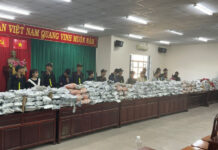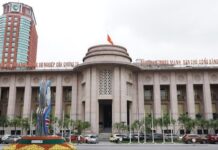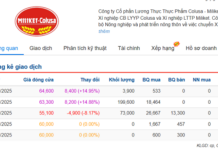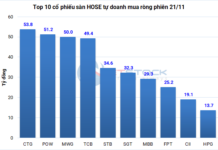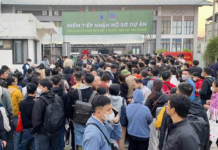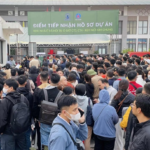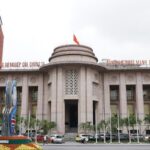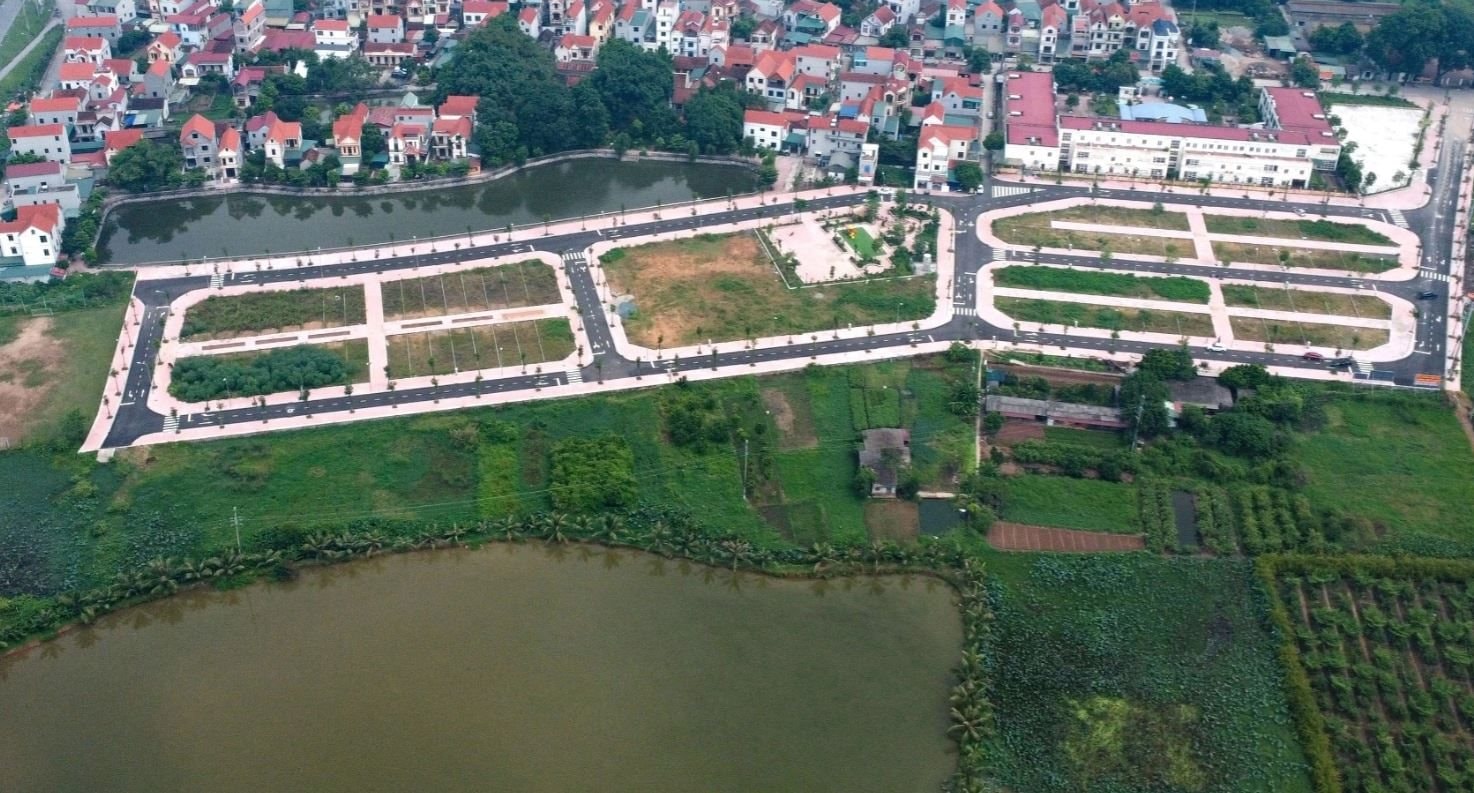
Business Perspective
Recently, at the workshop “Perfecting Land Law to Create Momentum for Development in the Digital Age,” Mr. Nguyen Quoc Hiep, Chairman of GP.Invest, shared that one of the shortcomings of the 2024 Land Law is the principle of determining land prices according to “market prices.” This method can easily create a spiral effect: land prices drive up housing prices, and higher housing prices, in turn, push land prices even higher, leading to uncontrollable cost escalation and potentially making Vietnam’s land prices the highest in the world.
Mr. Hiep cited an example from a GP.Invest project in Phu Tho, where land was allocated through separate decisions, first 7.2 hectares, then 8.4 hectares, and later 6.7 hectares. However, each time the land was allocated, the price was about 20% higher than the previous allocation.
“We made full payment within 30 days of receiving the land allocation decision and met the conditions for sale. But those sales contracts were used as a basis to increase the land price for the next allocation, and so on, leading to不断 escalating prices,” Mr. Hiep shared.
He believes that this is a practical issue that the business community has repeatedly suggested to the drafting committee, but it has not been accepted. With the new amendments, the new clauses (Articles 158, 160, and 161) have officially abandoned the mechanism of determining land prices according to “market prices” and replaced it with a stable land price framework for five years, with adjustments made through coefficients.
Vietnam Valuation Association’s Perspective
Regarding land valuation, the Vietnam Valuation Association (VVA) suggested that the 2024 Land Law amendments should adhere to the principle of the State determining land prices according to market mechanisms. They proposed maintaining the current Land Law provisions on land prices and focusing on reviewing and amending the implementing legal documents to align with practical requirements.
Specifically, according to Mr. Nguyen Tien Thoa, Chairman of the Vietnam Valuation Association (VVA), after studying the expected amendments to the 2024 Land Law, the VVA recommended considering retaining the content of Articles 158, 159, 160, and 162 in Section 2 on Land Prices of the current Land Law. They suggested reviewing and amending the specific guidelines issued by the Government to align with the content of these Articles and Paragraphs to better meet the practical demands.
The VVA assessed that the current Land Law’s provisions on land prices have fundamentally met several critical requirements. These include compatibility with the theory of land pricing, adherence to the guidance of the International Valuation Standards Council – of which the Vietnamese pricing industry is a member. They are also proven to be suitable for the practical conditions of Vietnam’s land market and comply with the directives of the Political Bureau in Resolutions 18-NQ/TW and 69-NQ/TW.
Regarding land price regulations, the VVA emphasized that the Sixth National Congress of the Party introduced a comprehensive renewal direction. From this point onwards, Vietnam’s economy was defined as a multi-sector commodity economy, operating under a market mechanism with state management. Subsequently, it was further refined as an economy operating under a socialist-oriented market mechanism.
Therefore, when the right to use land is recognized as a commodity that can be bought and sold within this mechanism, it must objectively operate under market economy principles. In this economic mechanism, prices are considered the central category of the market, formed, and influenced by the objective signals of economic laws of prices (primarily the law of supply and demand, monetary circulation, and competition). Thus, prices, regardless of the deciding authority – including the State – should adhere to this market principle. This is an objective requirement of the market price mechanism.
The VVA argued that the State, as the representative of the owner, has the right to determine prices when this type of commodity operates under market mechanisms. By respecting the objective movement of the market and setting prices according to market principles, the State does not contradict its economic nature within this economic mechanism. If there is a concern about the consequences of land prices following market mechanisms (of course, in an inefficiently regulated market), returning to a non-market pricing mechanism to artificially stabilize the market according to subjective wishes, ignoring market laws, will result in subsidized prices existing alongside actual market prices, pushing the market into an opaque, unregulated state. It will also create fertile ground for mechanisms of privilege and special interest, such as “permit allocation,” to thrive…
Expert Perspective
Sharing his thoughts on applying the land price framework according to the 2024 Land Law, Prof. Dr. Dang Hung Vo, former Deputy Minister of Natural Resources and Environment, stated that, in reality, whether the land price framework is set low or high, there will always be conflicting opinions.
Prof. Dang Hung Vo raised the question: Why do these controversies exist?
According to Mr. Vo, there are two main issues. First, the land price framework must be equivalent to and compatible with market prices. This requirement has been stipulated in the 2013 Land Law, but it has not been effectively implemented. The question arises regarding the method of implementation. This is a matter of state policy.
Depending on the specific case, the market price can be applied at 80% or 20%. These varying rates aim to attract investment, promote economic development, and ensure social welfare. The current policy may change in five years, demonstrating the dynamic nature of policy-making.
This dynamic approach addresses the conflicting opinions regarding bringing land prices closer to market values.
Second, we are transitioning from a subsidized economy to a market economy. Therefore, market forces should determine value.
Spring Residences: An Elevated Standard of Living Amidst an Endless Spring Garden
Nestled atop a hill overlooking the lush million-pine valley of Thanh Xuan, the Spring Residences collection by BIM Land offers an exclusive lifestyle choice for a discerning community. With a contemporary design aesthetic, these residences provide a rich tapestry of experiences, fostering multigenerational bonds and a deep connection with untouched nature.
“Unauthorized Farmstay Construction in Hue: New Owner Seeks Legalization, Agriculture and Environment Department Clarifies Authority.”
“For those with a green thumb and an entrepreneurial spirit, this land is a golden opportunity. This agricultural land is zoned for a unique blend of commercial and service purposes, offering a versatile canvas to bring your business dreams to life. With the right vision and the necessary approvals from the authorities, you can create a thriving enterprise that serves the community and beyond. Imagine cultivating not just crops, but also a vibrant hub of activity that becomes a destination in itself. The potential is limitless, and with your expertise and our guidance, we can craft a proposal that will impress and convince the decision-makers. Let’s paint a picture of a vibrant future together.”
The Eastern Expressway: Opening Soon for a Seamless Journey
The Vuong Ang-Bung Highway, a 55-kilometer-long expressway connecting Ha Tinh and Quang Tri provinces, is set to open on August 28.
“Mitsubishi Estate Continues to Invest in Built-to-Suit Warehouses in Tay Ninh and Hai Phong”
Mitsubishi Estate, a prominent Japanese real estate conglomerate, has expanded its footprint in the Vietnamese market with the inauguration of its first logistics project in the country, Logicross Nam Thuan. This marks a significant step for the company as it ventures into the thriving logistics industry in Vietnam, specifically in the Tay Ninh region.




